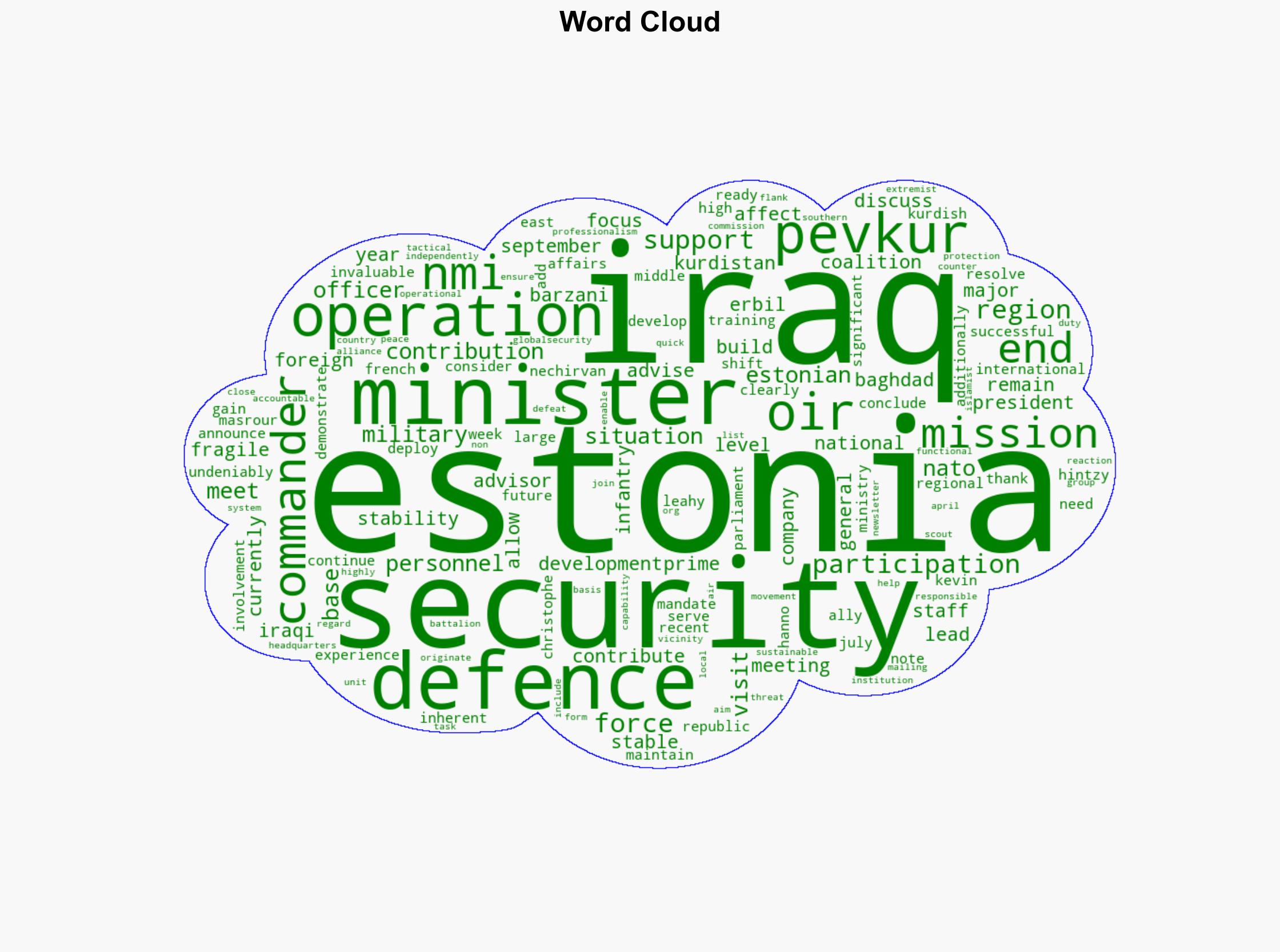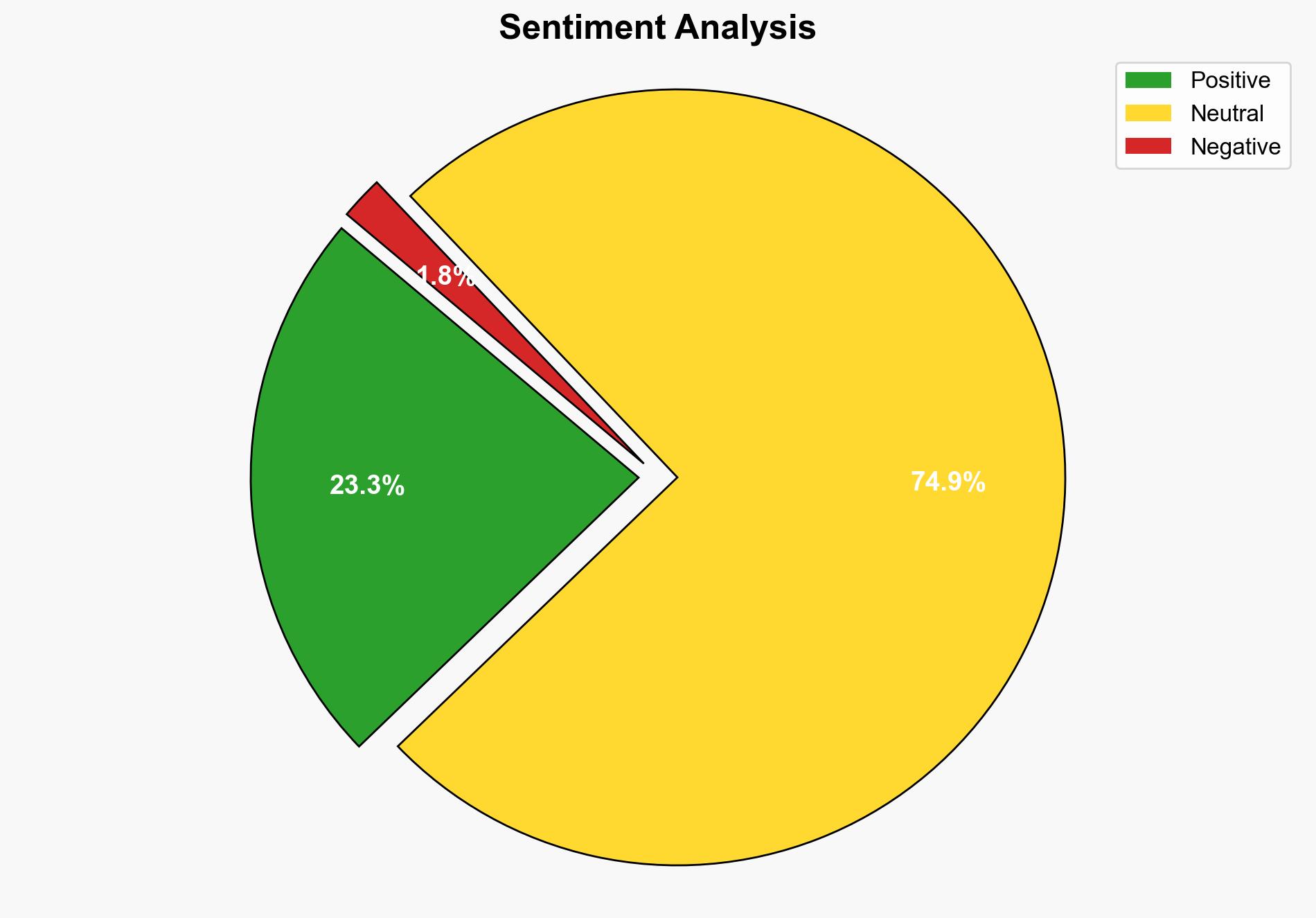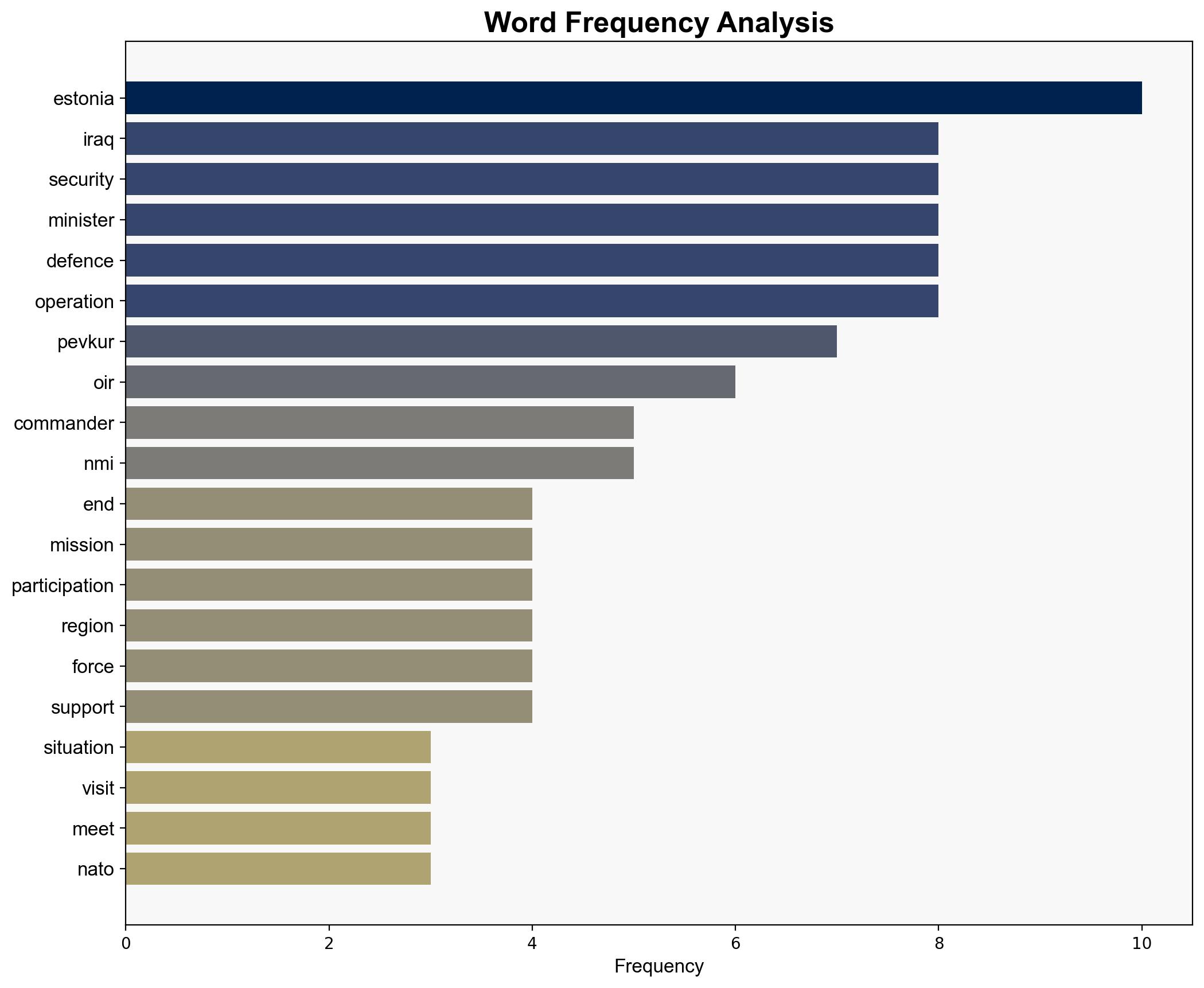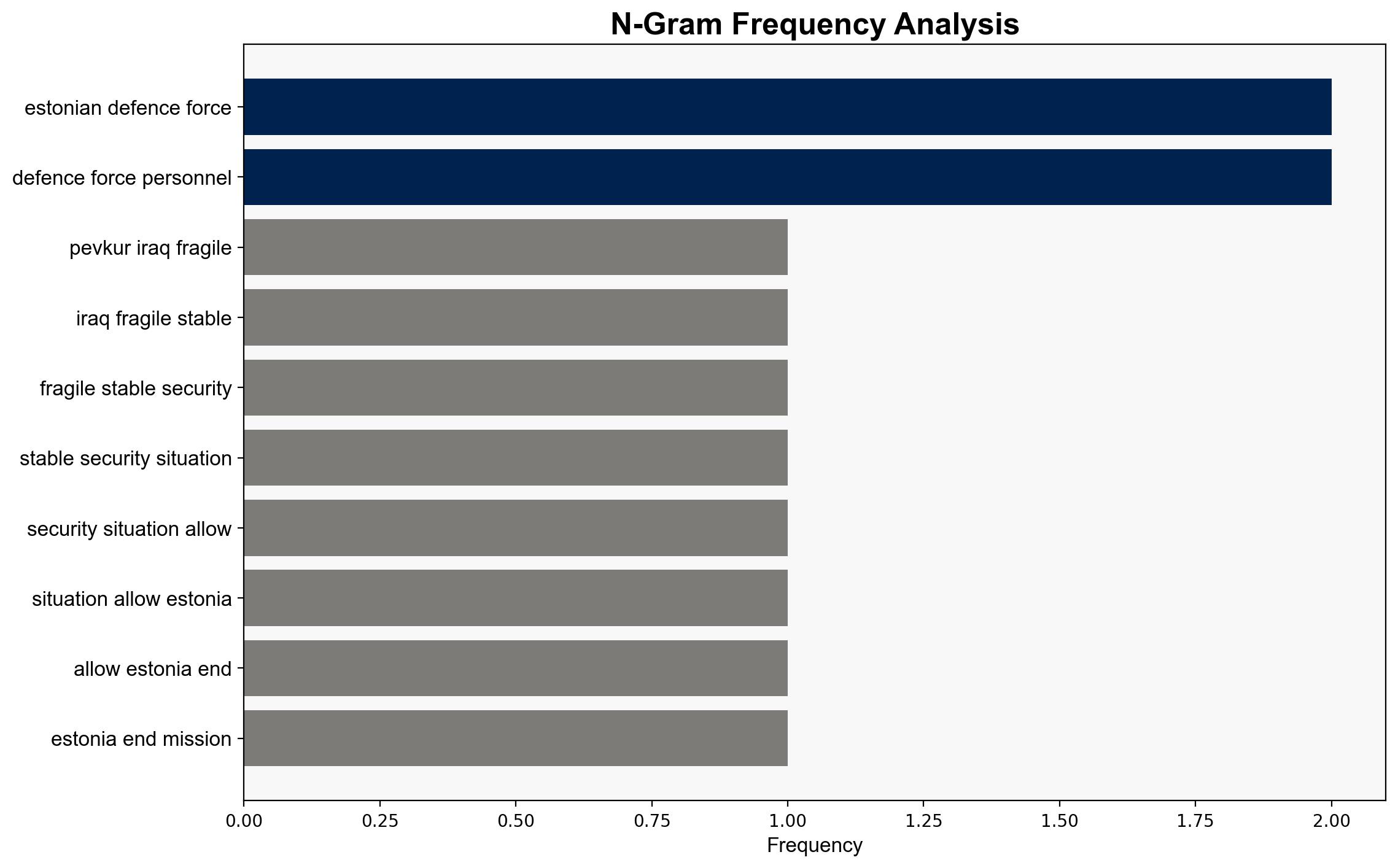Pevkur in Iraq a fragile but stable security situation allows Estonia to end its mission participation by September – Globalsecurity.org
Published on: 2025-07-19
Intelligence Report: Pevkur in Iraq – A Fragile but Stable Security Situation Allows Estonia to End Its Mission Participation by September
1. BLUF (Bottom Line Up Front)
Estonia has decided to conclude its military participation in Operation Inherent Resolve (OIR) in Iraq by September, citing a fragile yet stable security situation. This strategic decision allows Estonia to redirect focus towards enhancing its national defense capabilities. The withdrawal reflects a broader regional stability that permits such a transition, while Estonia remains committed to supporting NATO missions and regional allies if needed.
2. Detailed Analysis
The following structured analytic techniques have been applied to ensure methodological consistency:
Causal Layered Analysis (CLA)
– **Surface Events**: Estonia’s withdrawal from Iraq coincides with a perceived stabilization in the region.
– **Systemic Structures**: The decision aligns with NATO’s ongoing efforts to build sustainable security institutions in Iraq.
– **Worldviews**: Estonia’s focus on national defense reflects a shift in strategic priorities amid evolving global threats.
– **Myths**: The narrative of a stable Iraq supports the notion of successful international intervention.
Cross-Impact Simulation
– The withdrawal may influence regional dynamics, potentially affecting coalition operations and local security forces’ capabilities.
– Economic dependencies and political alliances in the region could experience shifts as a result of changing military commitments.
Scenario Generation
– **Best Case**: Iraq continues to stabilize, allowing for further international troop reductions and increased local governance.
– **Worst Case**: A resurgence of extremist activities destabilizes the region, necessitating renewed international military involvement.
– **Most Likely**: Gradual improvement in Iraq’s security infrastructure with ongoing international support, albeit at reduced levels.
3. Implications and Strategic Risks
The withdrawal may expose vulnerabilities in Iraq’s security forces if not adequately compensated by other coalition members. Potential risks include a resurgence of extremist groups exploiting any security vacuums. Estonia’s shift in focus could also impact its readiness to respond to regional threats, emphasizing the need for robust intelligence and rapid response capabilities.
4. Recommendations and Outlook
- Estonia should enhance intelligence-sharing mechanisms with NATO and regional allies to monitor potential threats post-withdrawal.
- Invest in training and capacity-building for local Iraqi forces to ensure a sustainable security environment.
- Scenario-based planning should be employed to prepare for potential destabilization, ensuring rapid deployment capabilities if needed.
5. Key Individuals and Entities
– Hanno Pevkur
– Nechirvan Barzani
– Masrour Barzani
– Christophe Hintzy
– Kevin Leahy
6. Thematic Tags
national security threats, cybersecurity, counter-terrorism, regional focus





